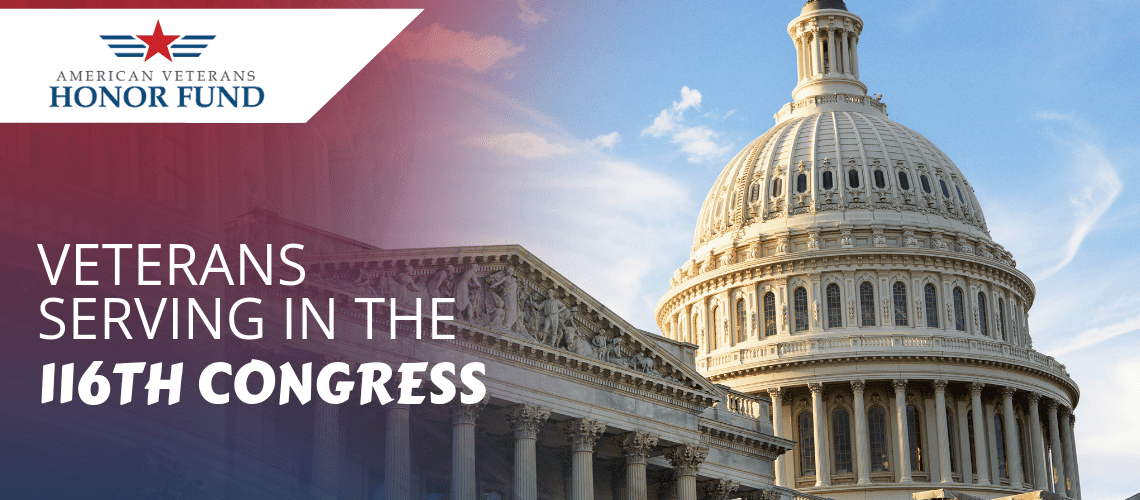The new class of American lawmakers were officially sworn in to their new duties in January 2019. The incoming class was elected in the 2018 midterms and features 96 legislators with military experience. In recent decades, a decline has been observed in military veterans serving in Congress, but this year’s class shows promising numbers nonetheless.
New Veterans Serving in Congress
The number of lawmakers with military experience dropped by six from the 2016 class, but the number of freshman members who are veterans is at a 10-year high with 16 represented.
6 Female Veterans Elected
One hundred fifty veterans ran for office in the 2018 midterm elections, including a record number of female service members. As a result, six female veterans were also welcomed to the ranks in one of the most diverse, female powered Congress session ever.
“Veterans have a formative experience in their 20s that makes them likely to put country ahead of party,” former Marine Jason Mangone told Reuters. “That’s the sort of leadership we really want to see; particularly out of these young veterans.”
3 Purple Heart Recipients
Also included among the 116th Congressional class are three recipients of the prestigious Purple Heart award for their service in combat. Brian Mast (R-FL), Jim Baird (R-IN), and Dan Crenshaw (R-TX) were all wounded during time served in Afghanistan, receiving both the Purple Heart and the Bronze Star award for their bravery.
Does Military Experience Help in Congress?
Some may ask, why is having military experience important for members of Congress?
Military experience provides individuals with a unique worldview. Depending on their combat experience or job description, veterans have seen and done more than the average citizen. With this perspective, veterans are often seen as pragmatic and have a desire to make a difference for their country. This desire can translate into entering into the ranks of legislators in an effort to see these beliefs come to fruition.
One matter near and dear to most veterans’ hearts is that of veteran services. For example, Mike Bost (R-IL) has championed a reform of the Department of Veteran Affairs, an effort to bring a higher level of care to veterans. This is a common complaint of many coming out of their time in the military, and one that veteran lawmakers can get behind in their work.
A Focus on Important Military & Veteran Issues
Many other military and veteran issues will be taken into consideration in the upcoming months of congressional service. Having those with military experience lobbying for matters that will help other service members is instrumental in facilitating improvement and change.
These issues include defense spending/military budgeting, deployment, border control, enlistment protocol, and much more. A strong representation in Congress by veteran lawmakers will help bring these platforms to the forefront, as those with experience in the service can attest to the effects these decisions have on the military population.
With this strong roster of constituents representing veteran interests, those disheartened by the decline in representation can start to feel a bit more at ease. Having a voice in lawmaking is vital. This class of lawmakers, which includes 9/11 veterans and former officers, will be a formidable voice within Congress.
And the veterans serving in the 116th Congress are already hard at work, putting forth initiatives such as The Independent Budget Veterans Agenda for the 116th Congress. This policy puts forth a strategy for keeping the Department of Veterans Affairs funded and fully operational and will serve as a blueprint for how matters affecting veterans can best be handled.
The Independent Budget initiative also contains recommendations for veteran health care as well as proper access to education through the GI Bill.
As the 116th Congress gets fully into swing, look for the veteran representatives to champion the causes affecting service members and their post-service lives.

